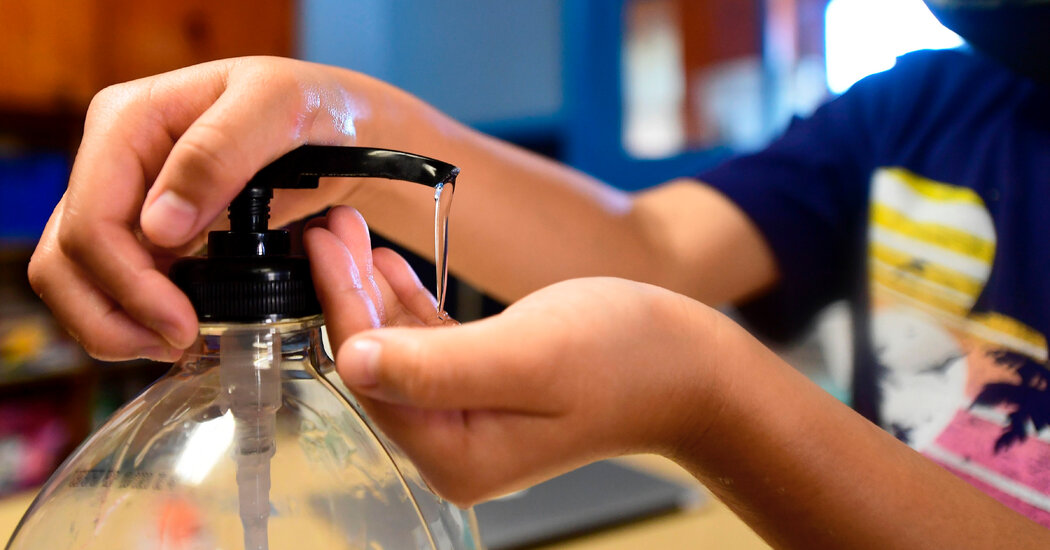The Food and Drug Administration has expanded its list of hand sanitizers that consumers should avoid to include products with inadequate levels of alcohol in addition to those containing methanol.
The agency issued an advisory last week announcing that its tests had found four hand sanitizers with “concerningly low levels of ethyl alcohol or isopropyl alcohol” — active ingredients in hand sanitizers.
The Centers for Disease Control and Prevention recommend that consumers use alcohol-based hand sanitizers with at least 60 percent ethanol, if soap and water are not available.
The four hand sanitizers the F.D.A. found to have inadequate concentrations of ethanol are NeoNatural, Medicare Alcohol Antiseptic Topical Solution, Datsen Hand Sanitizer and Alcohol Antiseptic 62 Percent Hand Sanitizer.
Three of the four products, all of which are manufactured in Mexico, were added to an import alert to stop them from entering the United States.
The F.D.A. also flagged several more products that had inadequate amounts of benzalkonium chloride, a chemical with antimicrobial properties.
By Tuesday, the F.D.A.’s list of hand sanitizers that consumers should avoid had grown to 115.
In June, the agency warned consumers to avoid nine hand sanitizer products that were manufactured in Mexico because they contained methanol, a substance that can be toxic if absorbed through the skin or ingested. Substantial methanol exposure can lead to nausea, vomiting, headaches, permanent blindness and seizures, among other harmful effects.
During the coronavirus pandemic, sales of hand sanitizers have soared as consumers tried to observe health officials’ recommendations to frequently and thoroughly wash or sanitize their hands to keep from contracting the virus.
According to Dr. Matthew G. Heinz, a hospital physician in Tucson, Ariz., 60 percent alcohol is the minimum concentration for a hand sanitizer to be effective. Lower concentrations mean diminished disinfectant properties, he said.
“Depending on the exact concentration, it may almost have the same effect as putting water on,” Dr. Heinz said on Tuesday. “If we’re talking something in the 15, 20, 25 percent range, you may not be able to really kill anything.”
Asked how much sanitizer a person should use, Dr. Heinz recommend an amount that would cover the hands entirely, not just the palms. But using hand sanitizer repeatedly throughout the day, he said, is no substitute for using warm water and soap for cleaning.
“After multiple uses, you can start diminishing the effectiveness of the hand sanitizer,” Dr. Heinz said. “You really do need to actually wash with soap and water for 20 seconds or more to kind of renew things. You really can’t just apply hand sanitizer 40 times throughout the day and think that you’re good.”
[ad_2]
Source link


